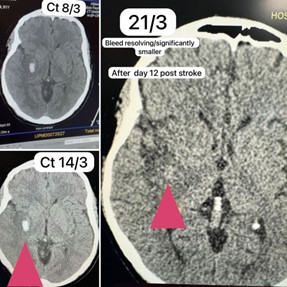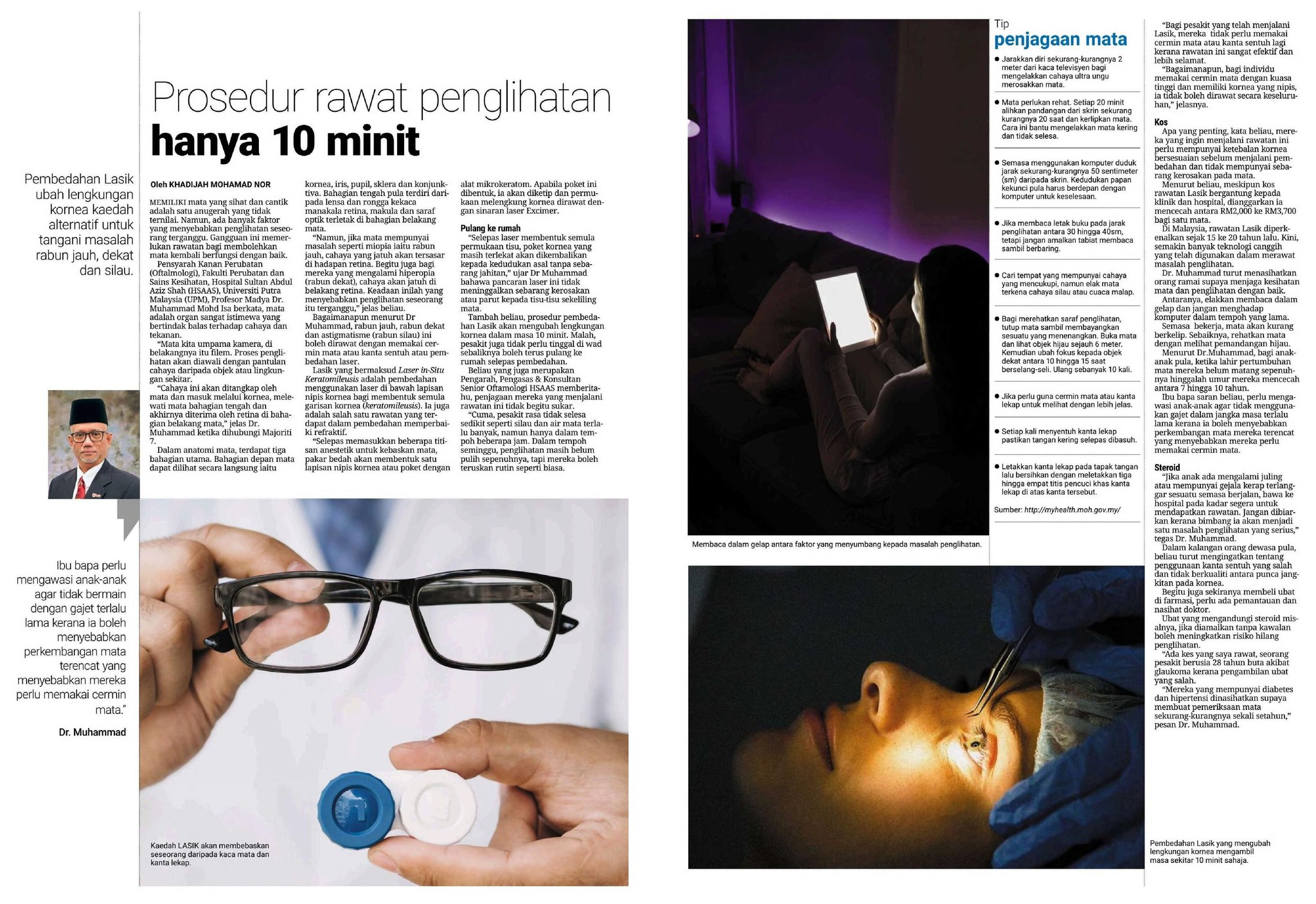Every year, public funds and resources go down the drain when medicines prescribed by government health facilities remain unused or are discarded in the trash bin. In a series of five articles, Bernama dives into the issues surrounding the irresponsible actions of some patients. This is the fourth installment.
KUALA LUMPUR (Bernama) – Is it true that long-term use of drugs to treat diabetes and hypertension can lead to kidney damage?
Believing that this is true, quite a number of people suffering from chronic or non-communicable diseases (NCDs) fail to comply with the medication regime prescribed by healthcare professionals. Their unused medicines, which many of them get from government health facilities every month at very low rates, are eventually discarded or returned to the hospital or clinic.
A 55-year-old housewife here who only wanted to be identified as Ziela Yahya is convinced that the prescribed drugs she has been taking for diabetes, hypertension and high cholesterol caused her to develop kidney disease.
The mother-of-three was diagnosed with diabetes, hypertension and high cholesterol five years ago but she was told by her doctor three years ago that she had kidney disease and would need to go for dialysis.
“I was surprised to be diagnosed with kidney disease as I was taking my (prescribed) medications properly and didn’t take any supplements or herbal products,” she said.
Worried that the medicines may have been the cause of her kidney problems, Ziela starting taking them on alternate days.
“But now, except for the cholesterol medicine, I’ve completely stopped taking the other medications. My diabetes is also under control,” she claimed, adding that these days she kept her health in check by eating healthily.

-- Photograph for illustrative purposes. washingtonpost.com
She, however, admitted that in the past she did not observe a healthy lifestyle and would consume sweetened soft drinks and other unhealthy food every day, even after she was diagnosed with chronic diseases.
“When I asked my doctor why I developed kidney disease even though I was taking my medications properly (earlier), he said it was due to my unhealthy lifestyle,” said Ziela.
FALSE PERCEPTION
The perception that long-term use of drugs for chronic illnesses would lead to other health complications has been around for a long time. And, one of the main challenges facing doctors and pharmacists, especially those working in government hospitals and clinics, is rectifying public misconceptions and encouraging medication compliance to avoid complications.

Dr Nor Fadhlina Zakaria.-- Photo courtesy of UPM’s Faculty of Medicine/ Dr Nor Fadhlina Zakaria
Universiti Putra Malaysia (UPM) Teaching Hospital nephrologist Dr Nor Fadhlina Zakaria said in the past seven years as a specialist in diseases and conditions affecting the kidneys, she came across many patients who thought their hypertension and diabetes pills would damage their kidneys over the long term.
“Their assumption is totally untrue because it’s not ethical for a qualified doctor to prescribe medications that can cause complications for their patients. This is because we doctors abide by the Hippocratic Oath, one of the basic principles of which is to ‘Do No Harm’,” she said.
Acknowledging that some medicines can affect the functions of certain organs, she said such prescriptions are closely monitored by the medical officer or specialist.
“If a drug’s effects exceed the safety limit, then the patient will be told to stop taking it and will be prescribed another medicine,” she added.
According to Dr Nor Fadhlina, in the treatment of NCDs, it is important to bring the disease under control to avoid adverse complications later on.
To avoid any damage to the excretory organs, she strongly recommends medication compliance, together with a healthy lifestyle and good eating habits.
HEALTHY LIFESTYLE
Referring to Ziela’s case, Dr Nor Fadhlina, who is a senior lecturer at UPM’s Faculty of Medicine, said it is crucial to educate patients on the importance of combining their medication regimen with a healthy lifestyle.
People with hypertension or diabetes should incorporate a healthy diet and regular exercise sessions into their lifestyle simply because such illnesses are caused by poor eating habits and a sedentary lifestyle.
“It’s dangerous for patients to stop taking their medicines and opt for traditional treatments whose efficacy is not scientifically proven. Or take supplements without being monitored by a doctor. The safety of these traditional medicines/herbs is not well-known and they may damage (the patient’s) organs,” she said, adding that if diabetes and hypertension are not managed properly, it can lead to other complications such as heart attack or stroke.
LOW COMPLIANCE LEVEL
Meanwhile, according to a 2018 article carried by the Perlis Health Department’s official portal, studies have shown that medication compliance among patients suffering from chronic illnesses was low in Malaysia. According to the findings revealed by the article, medication compliance among hypertension patients stood at 53 percent and diabetes patients 50 percent.

Prof Madya Dr Ruslinda Mustafar. -- Photo courtesy of UKM’s Nephrology and Dialysis Unit/ Prof Madya Dr Ruslinda Mustafar
Head of Hospital Canselor Tuanku Muhriz UKM’s Nephrology and Dialysis Unit Associate Prof Dr Ruslinda Mustafar said she is saddened by the low compliance levels as it is not only detrimental to the patients’ health but also incurs losses for the government.
It is believed that every year, tens of millions of ringgit worth of medicines dispensed by government health facilities are left unused by patients. Some of the unused medicines are returned to the hospital or clinic while others are discarded by patients who do not seem to feel an iota of guilt about their wasteful ways.
Dr Ruslinda said many of her patients who take their medications as prescribed by the doctor and observe a healthy lifestyle have stable kidney functions.
Only those who fail to take their medicines properly develop various complications, she pointed out.
“I feel sad when the pharmacist shows me the (unused) medicines that are returned by patients. Some of them, such as insulin (used in diabetes treatment), are expensive and some need to be kept in the fridge… thousands of ringgit go to waste when these medicines are returned in that state.
“In the United Kingdom, some people can’t afford to buy insulin because it’s not included in their health insurance coverage. I think patients who are forced to buy their medicines (at high prices) tend to appreciate their medicines more because they are using their own money to pay,” she said.
RISING NUMBERS
According to a study published in a 2017 edition of the Medical Journal of Malaysia, the annual overall cost of diabetes management in Malaysia was estimated at RM2.04 billion, out of which RM1.40 billion was borne by the government.
The figures will keep rising as indicated by the 2019 National Health and Morbidity Survey which estimated that 3.9 million (18.3 percent) Malaysians aged 18 and above suffered from diabetes. In 2015, the percentage of Malaysians with diabetes was 13.4 percent and in 2011, 11.2 percent.
As long as misconceptions over the long-term effects of medications for chronic illnesses prevail, the public will continue to discard the medicines they get from government facilities. Unfortunately, this will have adverse implications on patients who eventually will have no choice but to return to the hospital or clinic with their added complications, thus further straining government resources.
“No doctor would want to see their patient’s condition getting worse. This is why I keep stressing that understanding of the disease and medicine is crucial and this can be done by earning the trust of the patient and communicating with them effectively,” added Dr Ruslinda.
Translated by Rema Nambiar














.jpg)















